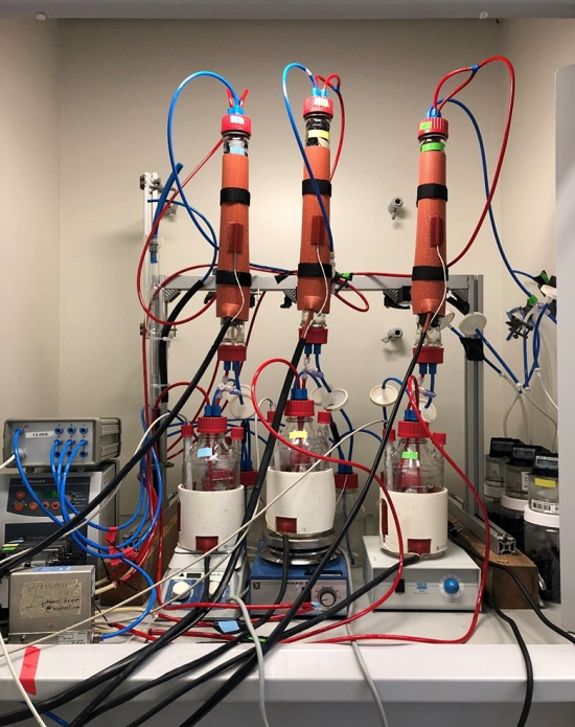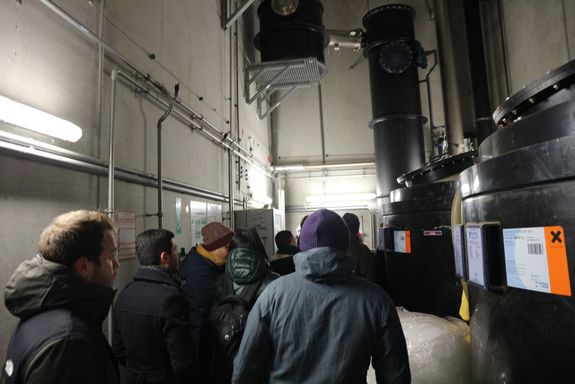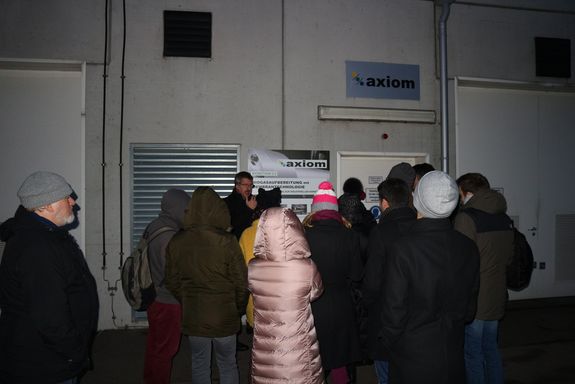In the public discussion about the targeted climate goals (EU Roadmap 2050), there is usually only one solution mentioned to face the greenhouse problem - namely the (legitimate!) approach of avoiding or strongly reducing CO2 emissions.
In science, however, the "capture" of CO2 (carbon capture) has also been discussed, considered and researched for years. The less complex "carbon capture" is, the more interesting the subsequent utilization processes will be, and the unpopular CO2 can become a valuable fuel source.
This is precisely where the "PTLiquid" (Power to Liquid), opens an external URL in a new windowresearch project, which has been running since 2018, comes in.
TU Wien and Energiepark Bruck/Leitha (joint providers of the postgraduate MSc program Renewable Energy Systems, opens an external URL in a new window) have acted as project partners from the beginning and support the team around project leader Dr. Günther Bochmann from the University of Natural Resources and Life Sciences Vienna, opens an external URL in a new window. Biogas Bruck/Leitha, opens an external URL in a new window (part of the Energiepark Bruck/Leitha Group) is providing essential insights from the perspective of a producer and supplier. With Prof. Michael Harasek,, opens an external URL in a new window lecturer in the master’s program MSc Renewable Energy Systems, TU Wien contributes expertise in the field of process engineering and modeling to the project team.*
The team led by project manager Dr. Günther Bochmann (BOKU Vienna) is developing a multi-stage, microbiological process for the production of liquid fuels (P2L) starting from CO2 and H2. The required CO2 is taken from the biomethane production process, from which it is captured in high-purity.
At the beginning of the PTL-process, the CO2 is transformed into hydrogen carbonate by an enzymatic process (carbonic anhydrase) and thereby liquefied (incidentally, the same biochemical process also takes place in the human body. Thus CO2 is dissolved in the blood so that it can be exhaled through the lungs subsequently).
In the next process step, acetic acid (acetogenesis) is produced and finally the desired ethanol (fuel) is made from it.
The aim of the project is to make the process efficient and stable on laboratory level and then to scale it up. A lifecycle analysis (LCA) will also be carried out.
This approach could be a new perspective for biomethane producers to add another step to their process chains producing bio-liquid fuels as well as biomethane. In addition to providing a new chance for biomethane plants, bio-liquids (as well as biomethane) can play an essential role in a transformed energy system by supplementing volatile wind power or photovoltaics with balance energy.
More on the topic:
Visit the project page Process development for the microbiological utilization of CO2 and H2 to produce ethanol, opens an external URL in a new window
MSc Renewable Energy Systems - Key Facts
Final Degree: Master of Science (MSc)
Academic Director: Univ.Prof.Dr.techn. Reinhard Haas
Language: English
Duration: 4 Semesters
Location: Vienna & Bruck/Leitha
Structure: part-time, blocked modules
Next Program Start: 4. November 2021
Application Deadline: 30. June 2021
Download Brochure >>, opens an external URL in a new window
* Subject coverage in the curriculum of the MSc Renewable Energy Systems
The subject of biogas and carbon capture is dealt with in several modules of the Master’s program. The biogasplant at Energiepark Bruck/Leitha is visited in the course of an excursion, led by Prof. Harasek.


